Agricultural field days are learning events organized and hosted by the producer in collaboration with agricultural value chain stakeholders. The event usually includes demonstration of specific good management practices, new innovations, research methods, and success stories. Such events are organized to market good agricultural practices that are promoted by different agricultural advisory service providers.
On 1st April 2023, Malawi Forum for Agricultural Advisory Services (MAFAAS) attended a field day organized by Lilongwe Agricultural Development Division (LADD), a member of MaFAAS. The LADD covers three districts: Lilongwe, Dedza, and Ntcheu. The LADD and its stakeholders showcased different innovations and extension methods. The theme for the field day was Climate smart and diversified agriculture: key to sustainable food, nutrition and income security. Eight sites carried different messages of innovations and innovation platform explanations.
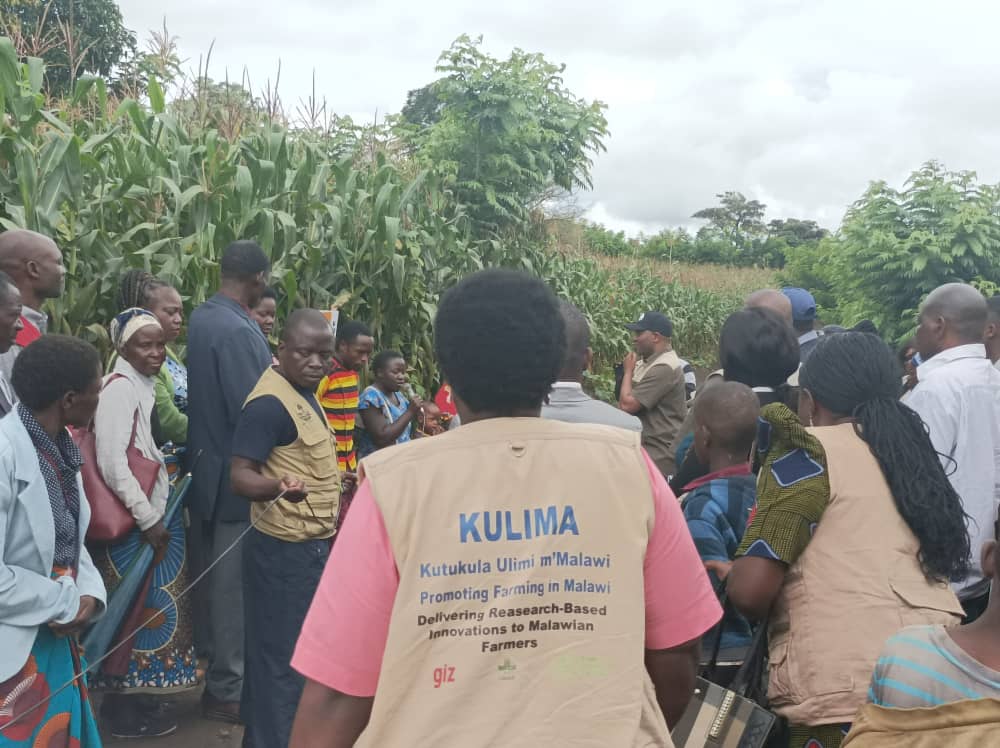
Explanation of the Decentralized Agricultural Extension Services Structure (DAESS) was managed by a farmer, Mr Folopezi Chokochani of Chadza cluster. He outlined more about how Agriculture Area Stakeholder Panels (AASP) work, Village agricultural committees facilitates the implementation of cluster and mindandanda activities. From the explanation it showed that there is good collaboration between the structures and they work together for successful implementation of the activities, all farmers are making sure that cluster activities are being implemented as agreed and all stakeholders are contacted to make sure no one is left behind.
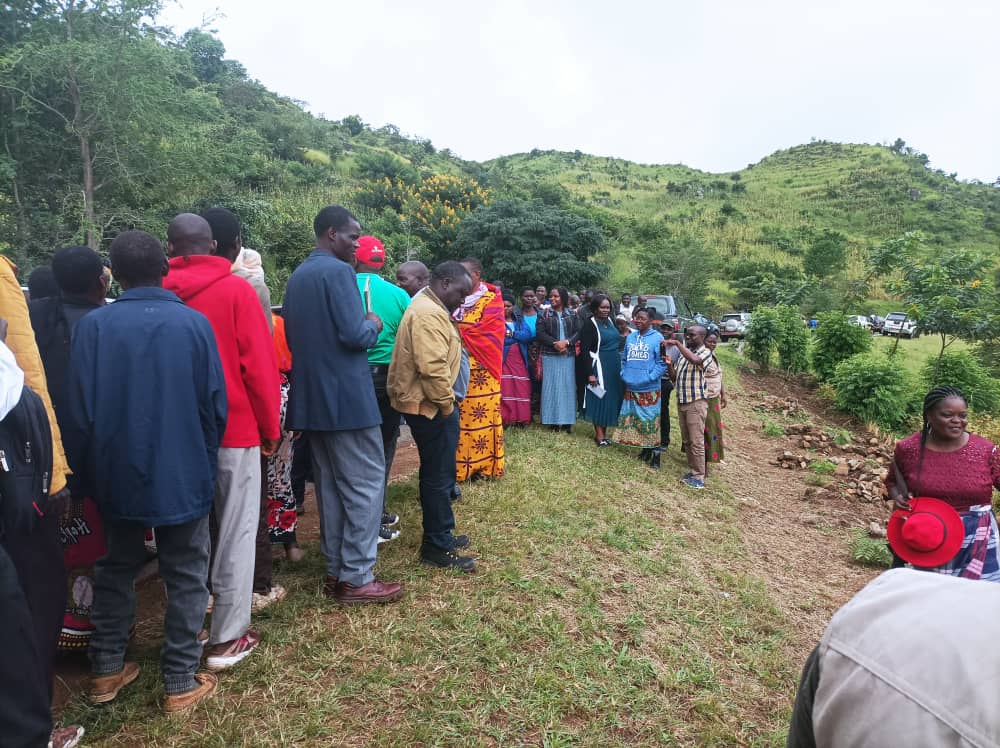
On this site Mrs. and Mr. Lingison explained about Mbeya fertilizer which is made from 90% organic materials and 10% inorganic fertilizer, this is a low-cost technology which MaFAAS is also advocating for at national level. The technology in being implemented by the Village Agricultural Committee and its farmers in the area and is receiving an overwhelming adoption rate due to its success on the ground. Many farmers are adopting the technology and this has also been due to an increased cost of inorganic fertilizers attributed by international attributes. The site carried a message of gender inclusiveness when working at family level and also how best farmers can improve their soil fertility as manure stays long in the soil and also reduced amount of fertilizer reduces number of mineral elements deposited in the soil.
Site 3, 4 & 5: Climate Smart Agriculture
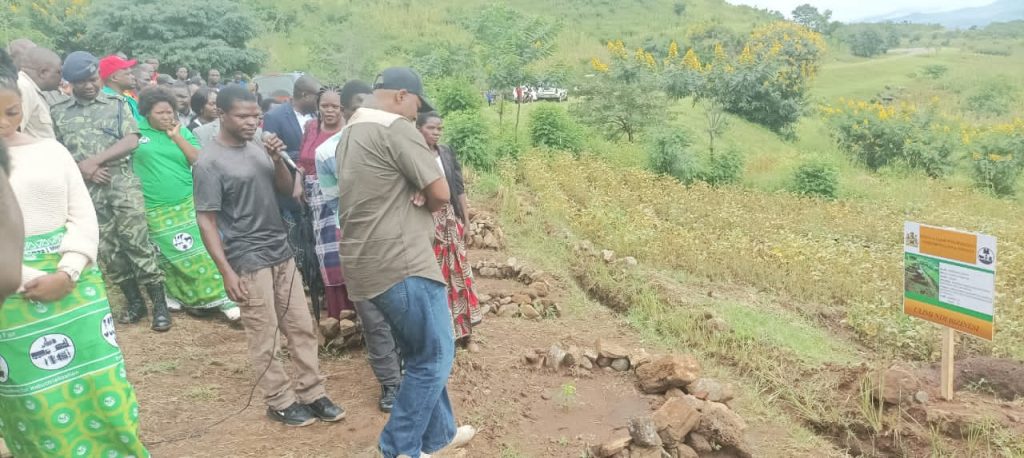
Site 3, 4 and 5 explained much about climate smart agriculture with messages of pit planting by Madalitso Mapondela who explained about digging pits, manure application in the pits and beans planting. The message about moisture conservation, higher field and greater resource mobilization was carried on board.
Site 4 was about catchment with technology packages of tree planting using half-moon and construction of soak pits, the key message was improving vegetative cover and harvesting rain water in order to conserve water and preserve soil.
Site 5 was about soil and water conservation within Chawa catchment, the technology showcased was check dam construction with key message of reducing runoff for land reclamation.
Site 6 was for Agriculture Sector Wide Approach II beneficiary who showcased a standard khola for housing goats. The stand was managed by Mr Choko Ndamela of Madetsa Village, the khola is well ventilated and protects animals from predators and diseases as dungs are being dropped down the khola base, these dungs are not just wasted but used to make manure.
Site 7 showed green maize well fed with fertilizer for Mkasauka Nyama who benefitted from 2022-2023 input subsidy program. There was hope that Mkasauka will have good yields and that this year will not be affected by hunger as she will have enough food for the whole year.
Site 8: Dietary Diversification
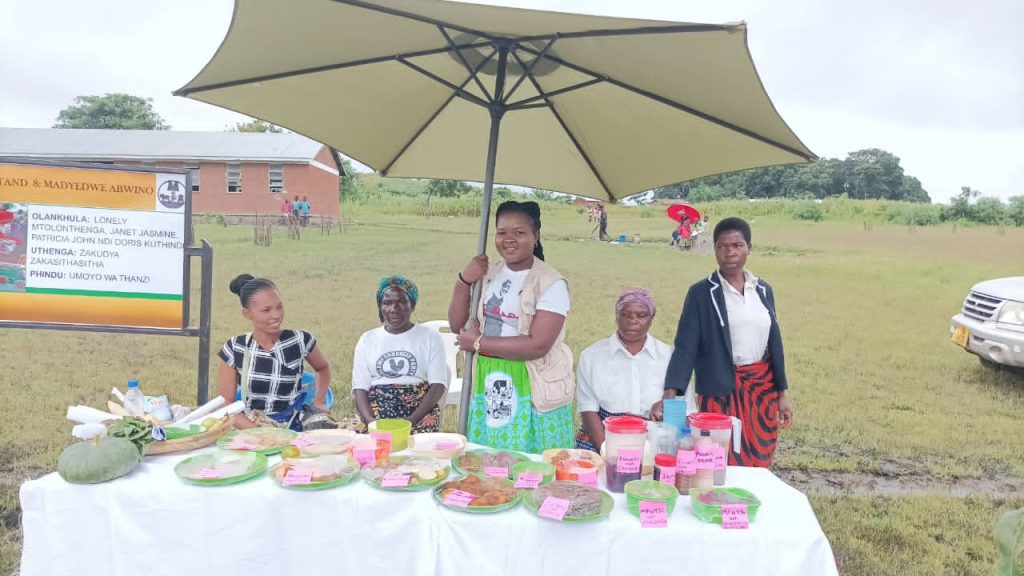
Site 8 was for Dietary diversification, Lonny Mtolonthenga explained how they manage food and provide families with well- balanced diets. “There is need to diversify food so that we can manage the six food groups. We have available food items in our communities, we just have to make sure we mix them well to come up with the best meal for the family. Healthy farmers are active farmers who can bring in more output from the farm.” says Lonny.
Other demonstrations were for stakeholders like agro-dealers. This shows that the ADD has a diverse of stakeholders and value chain actors in agriculture development. The value chain players manage to provide inputs, financial and advisory services to farmers to promote production.
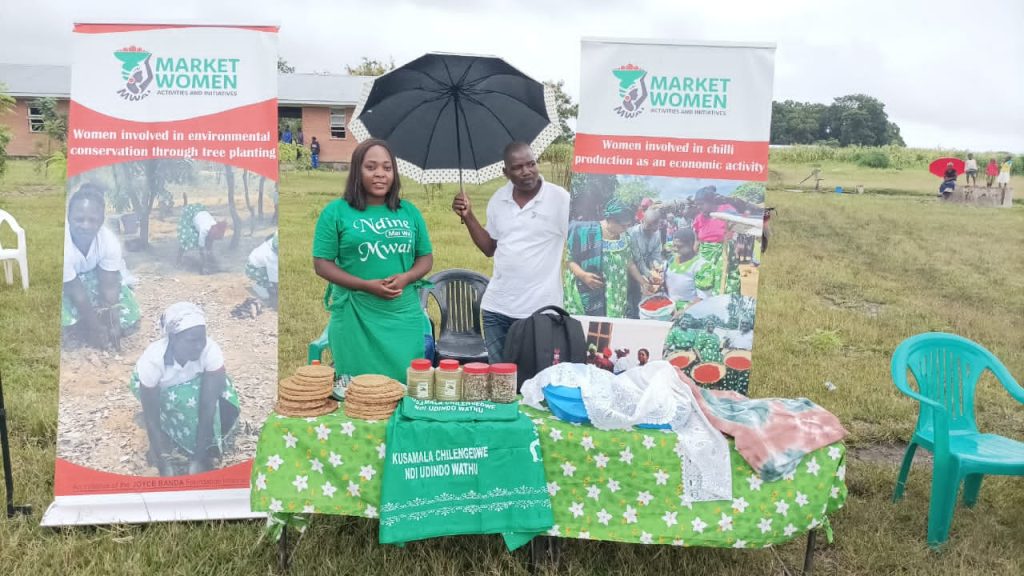
It is one of MaFAAS’ mandate to add value to the collaboration of stakeholder to make sure there is harmonization of messages, standardization of messages and also strong collaboration even with the private sector to effectively reach out to farmers in the last mile. Extension service is one of important inputs in agriculture and farmers needs to be capacitated on articulating demand to achieve demand driven advisory service delivery.
Conclusion
There is need to continue showcasing such innovations so that farmers also adopt and improve their livelihoods. There is need for strong collaboration among stakeholders in different value chain so that farmers can produce high yields with good demanded quality to make sure they realize more income and promote their livelihood development. MaFAAS will continue to bring stakeholders together and promote harmonization and standardization of advisory services. Lilongwe ADD is one of key players in advisory services and one of MaFAAS stakeholders key in reaching out to famers in the last mile.
Written by: Aubed Kang’ombe Zulu, MaFAAS ICKM
